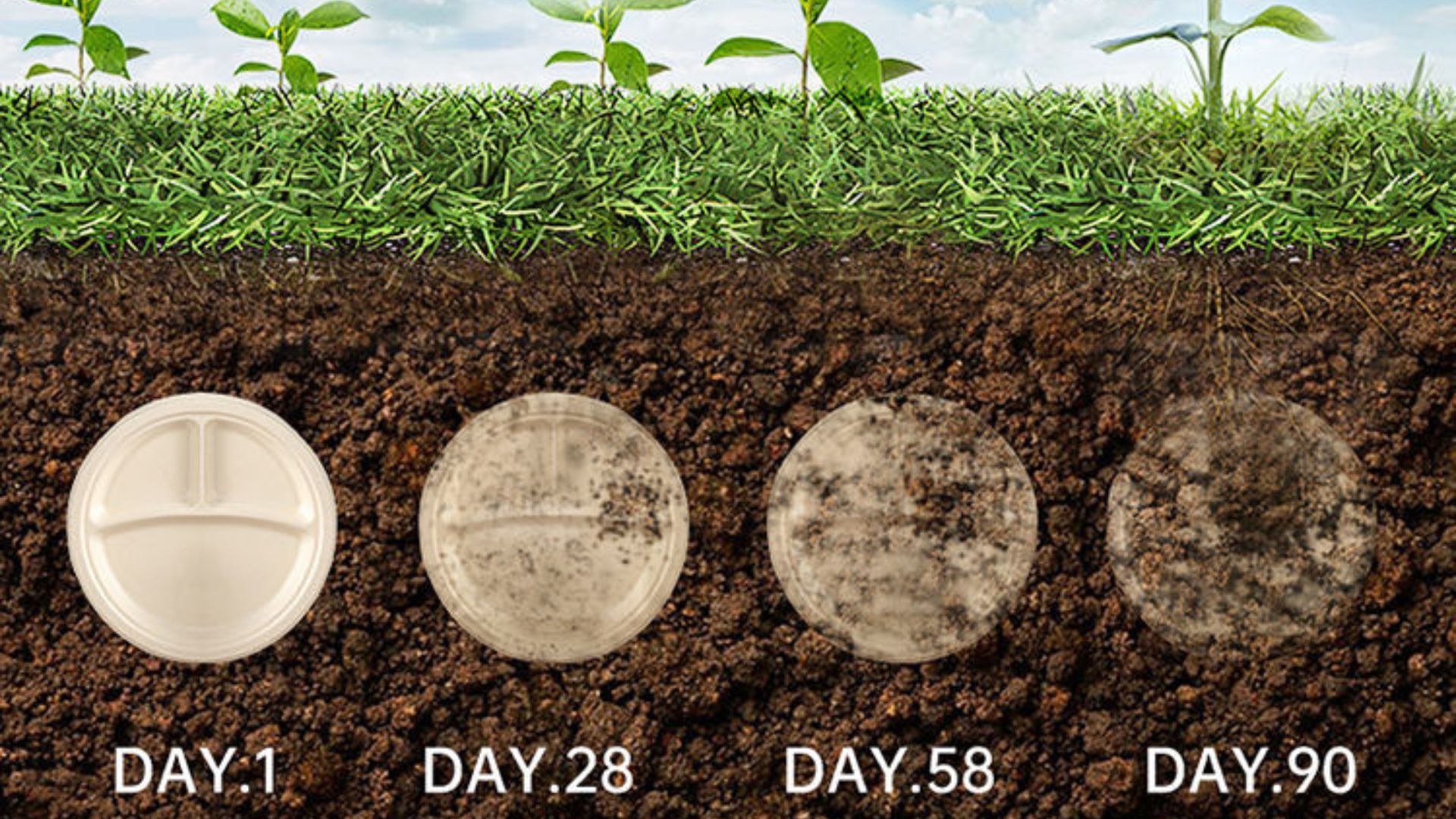
Compostable plates are a sustainable alternative to plastic, offering a wide range of environmental, economic, and practical benefits. By switching to these eco-friendly options, you can help reduce waste and improve your brand image.
Compostable plates are biodegradable, made from renewable materials, and offer a sustainable alternative to plastic. Learn more about their benefits.
If you’re looking to reduce your environmental footprint, compostable plates are a step in the right direction. Let’s dive deeper into their advantages.
How Do Traditional Plastic Plates Impact the Environment?
Traditional plastic plates are a major source of environmental pollution. They do not decompose quickly, remaining in landfills for hundreds of years. This leads to pollution of soil, water, and air, and contributes significantly to plastic waste.
Plastic plates contribute to long-term environmental damage due to their inability to decompose. Compostable plates are a cleaner alternative.
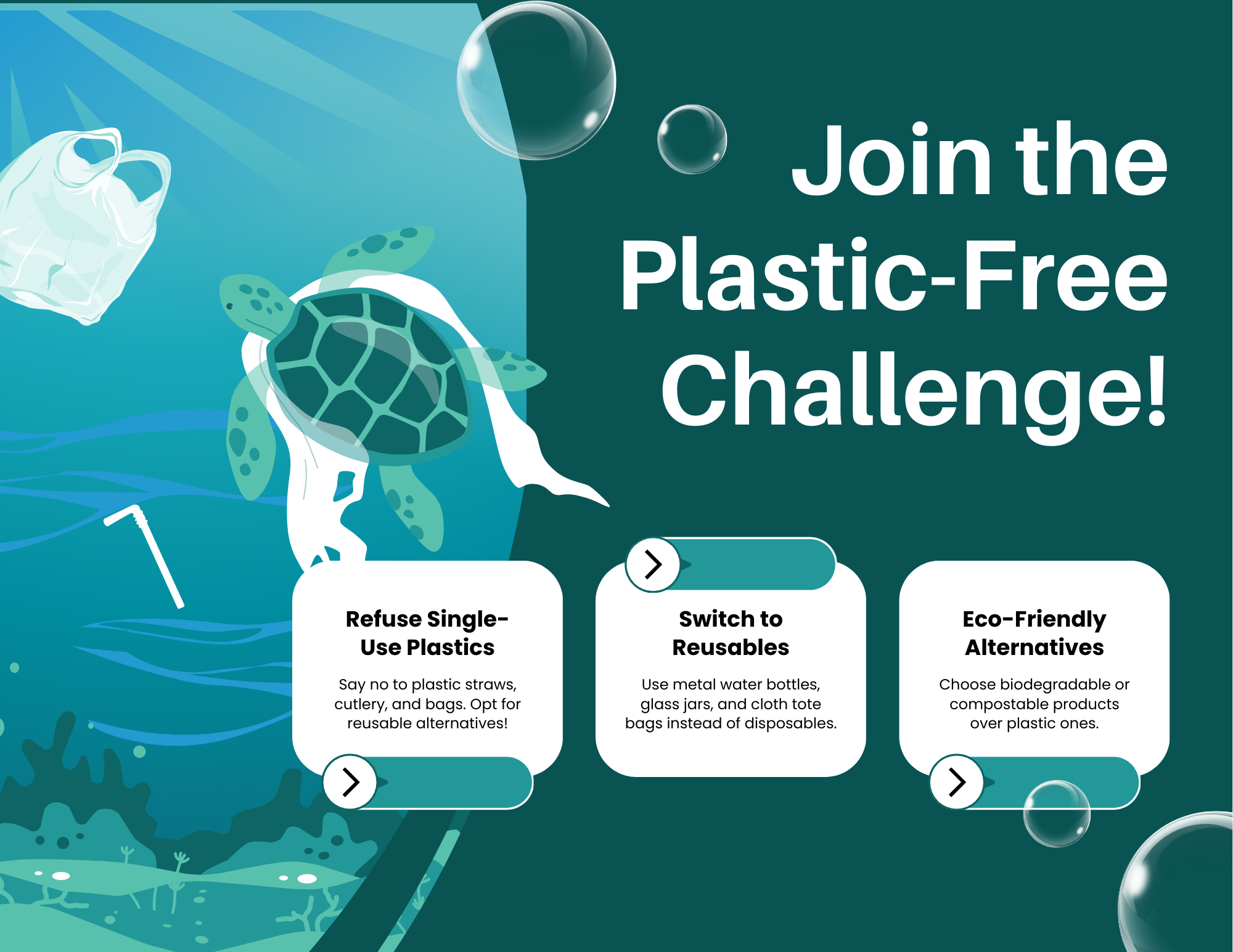
In many countries, plastic waste has become a significant environmental issue. The durability of plastic is both an advantage and a disadvantage. While plastic is strong and reliable for short-term use, its impact on the planet is undeniable. On the other hand, compostable plates, made from materials like bamboo or sugarcane bagasse, offer a more sustainable solution. They decompose naturally, unlike plastic, which can remain in the environment for centuries.
What Happens When Plastic Plates Decompose?
Plastic plates, when thrown into landfills, take hundreds of years to break down. As they slowly decompose, they release harmful chemicals into the soil and water, which can harm wildlife and contaminate food sources. This pollution contributes to the growing problem of microplastics, tiny pieces of plastic that infiltrate ecosystems and food chains.
| Impact Category | Plastic Plates | Compostable Plates |
|---|---|---|
| Decomposition Time | Hundreds of years | Weeks to months |
| Environmental Impact | High | Low |
| Risk to Wildlife | High | Low |
| Soil Fertility | None | High (nutrient-rich compost) |
What Are the Environmental Benefits of Compostable Plates?
Compostable plates are designed to decompose quickly and safely. They offer significant environmental benefits, reducing waste and promoting sustainability. By choosing compostable plates, you’re helping reduce the pressure on landfills and decreasing harmful waste in the environment.
Compostable plates decompose in weeks, reducing landfill waste, and contribute to soil fertility. They’re a win for sustainability.
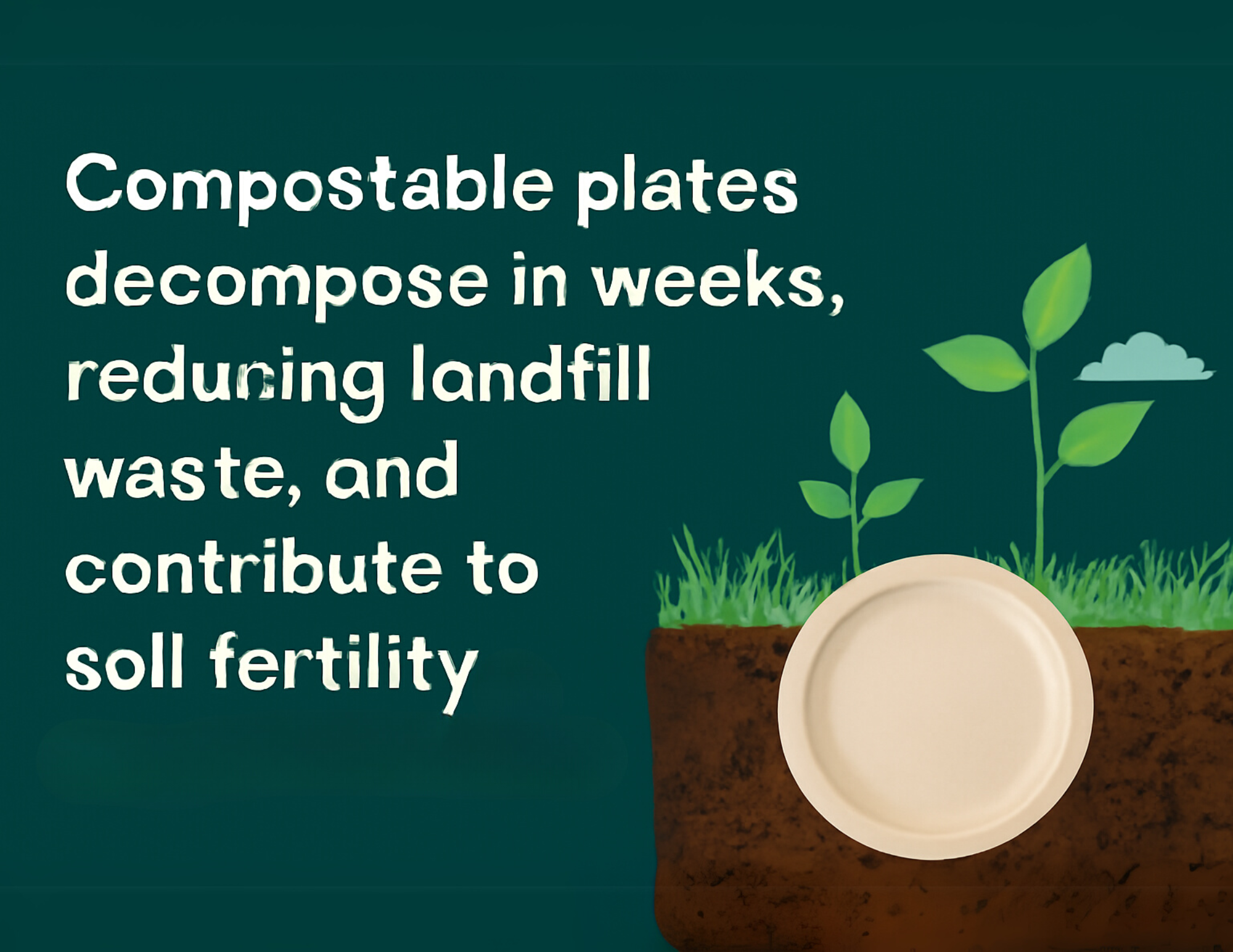
Unlike plastic plates, compostable alternatives are made from organic materials that break down naturally. This process contributes to soil health by returning nutrients back into the earth. Furthermore, these plates support circular economies, where waste is reduced, and resources are continually recycled. In many cases, they are made from fast-growing, renewable materials such as bamboo, which helps offset the carbon footprint associated with their production.
How Do Compostable Plates Reduce Landfill Pressure?
When plastic plates are thrown away, they pile up in landfills for generations. In contrast, compostable plates break down in weeks. They do not pollute the soil or release toxic chemicals. Instead, they decompose into nutrient-rich compost that enhances soil fertility. This helps to close the loop in waste management, promoting sustainable practices and reducing the long-term environmental impact.
The Role of Renewable Materials in Compostable Plates
Compostable plates are often made from fast-growing materials such as bamboo, which has a low carbon footprint. The production of bamboo requires less energy compared to plastic, which is derived from non-renewable petroleum resources. Therefore, compostable plates made from bamboo or similar materials help reduce greenhouse gas emissions and contribute to a more sustainable future.
| Material | Decomposition Time | Carbon Footprint | Energy Used in Production |
|---|---|---|---|
| Bamboo | Weeks to months | Low | Low |
| Plastic | Hundreds of years | High | High |
How Are Compostable Plates Practical for Food Service?
Compostable plates offer numerous practical benefits for food service businesses. They are durable, heat-resistant, and versatile enough to handle hot, oily foods. Additionally, they are free from toxic chemicals, ensuring safe use for consumers.
Compostable plates are durable, heat-resistant, and free from harmful chemicals, making them a practical choice for food service.

Compostable plates are not only eco-friendly, but they also meet the high standards of food service. Whether you’re running a busy restaurant or catering to an event, these plates offer reliable performance. They can hold up under the heat of freshly cooked food, resist leaking, and maintain their structure even with oily dishes. These features make them a practical choice for various food service applications, from casual dining to fine dining.
Are Compostable Plates Safe for Food?
Compostable plates are made from non-toxic, safe materials that are free from harmful chemicals like BPA and phthalates, commonly found in plastic plates. This makes them safer for food contact and healthier for consumers, which is increasingly important for businesses that want to meet health-conscious customer demands.
The Convenience of Using Compostable Plates
Using compostable plates also saves time and effort in food service operations. These plates are disposable, meaning you don’t need to worry about cleaning them after each use. Instead, they can be composted, helping reduce the amount of waste that ends up in landfills.
| Feature | Compostable Plates | Plastic Plates |
|---|---|---|
| Heat Resistance | High | Medium |
| Toxic Chemicals | None | Possible |
| Convenience | High (disposable) | Medium (need washing) |
How Do Compostable Plates Add Economic and Brand Value?
Although compostable plates may have a higher upfront cost compared to plastic, they can offer long-term savings and improve your business’s bottom line. By avoiding plastic-related fines, reducing waste disposal costs, and enhancing your brand image, compostable plates can help you save money in the long run.
While more expensive upfront, compostable plates can save money by reducing disposal costs and enhancing brand image.
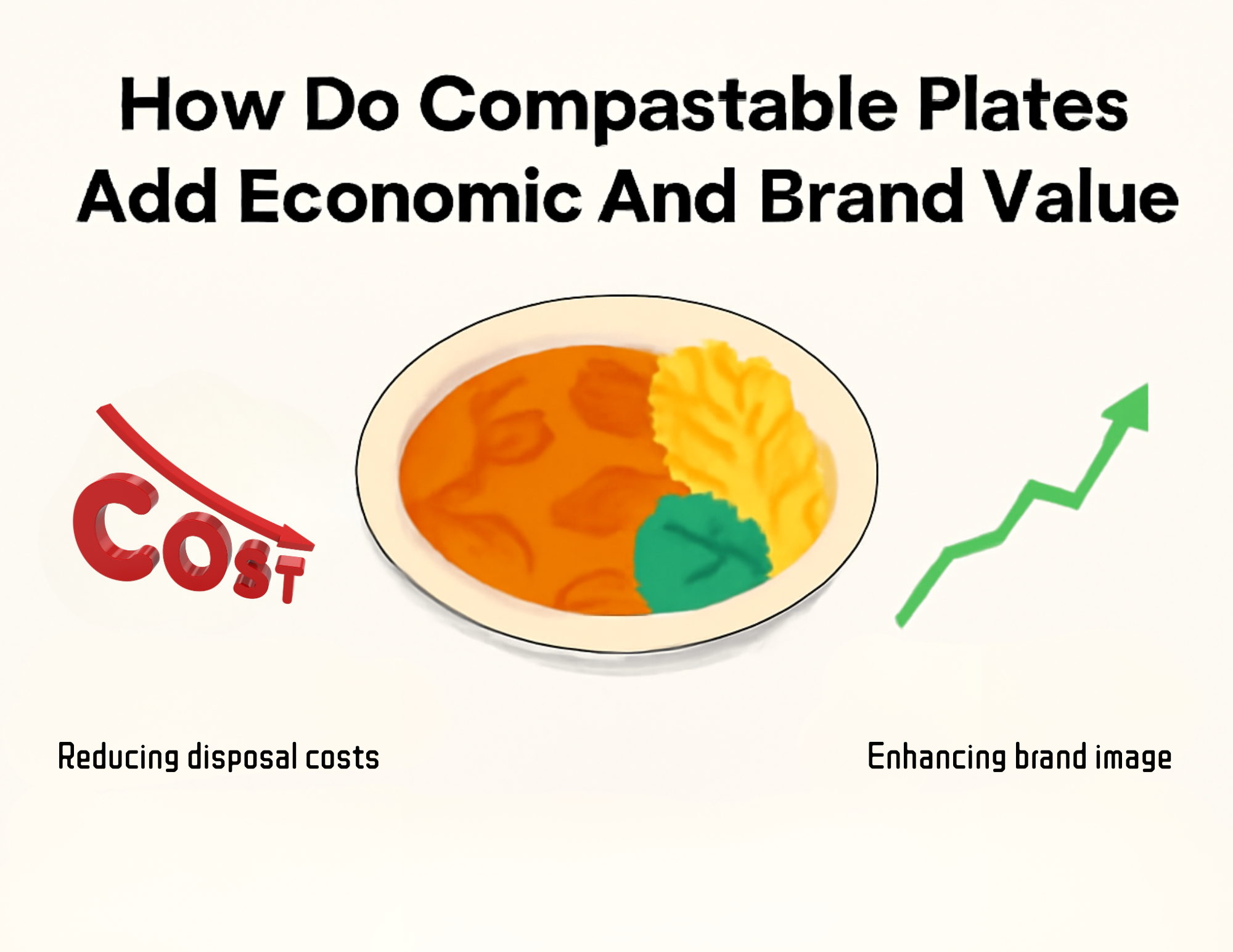
In addition to their environmental benefits, compostable plates also offer significant economic advantages. Businesses that switch to compostable options can avoid costly fines associated with plastic bans, especially in regions like the EU and the US. Moreover, they can attract a customer base that values sustainability, increasing customer loyalty and boosting overall sales.
How Can Compostable Plates Enhance Your Brand Image?
Using compostable plates sends a clear message that your business cares about the environment. This helps build trust with eco-conscious consumers who are more likely to choose your brand over competitors that still use plastic. By showcasing your commitment to sustainability, you can enhance your reputation and differentiate yourself in a crowded marketplace.
Cost Savings Over Time
While compostable plates are often more expensive upfront, they can save money in other areas. The reduction in waste disposal costs and the avoidance of plastic-related fines can offset the higher unit price. Furthermore, the long-term benefits of improved brand image and customer loyalty contribute to increased profitability.
| Benefit | Compostable Plates | Plastic Plates |
|---|---|---|
| Upfront Cost | Higher | Lower |
| Waste Disposal Costs | Lower | Higher |
| Brand Image | Enhanced | Neutral |
How to Maximize the Benefits of Compostable Plates?
To get the most out of compostable plates, businesses should ensure they are properly composted. Education and promotion are key to encouraging customers and staff to adopt compostable solutions.
Maximize compostable plate benefits by promoting proper disposal methods and educating staff and customers about their value.
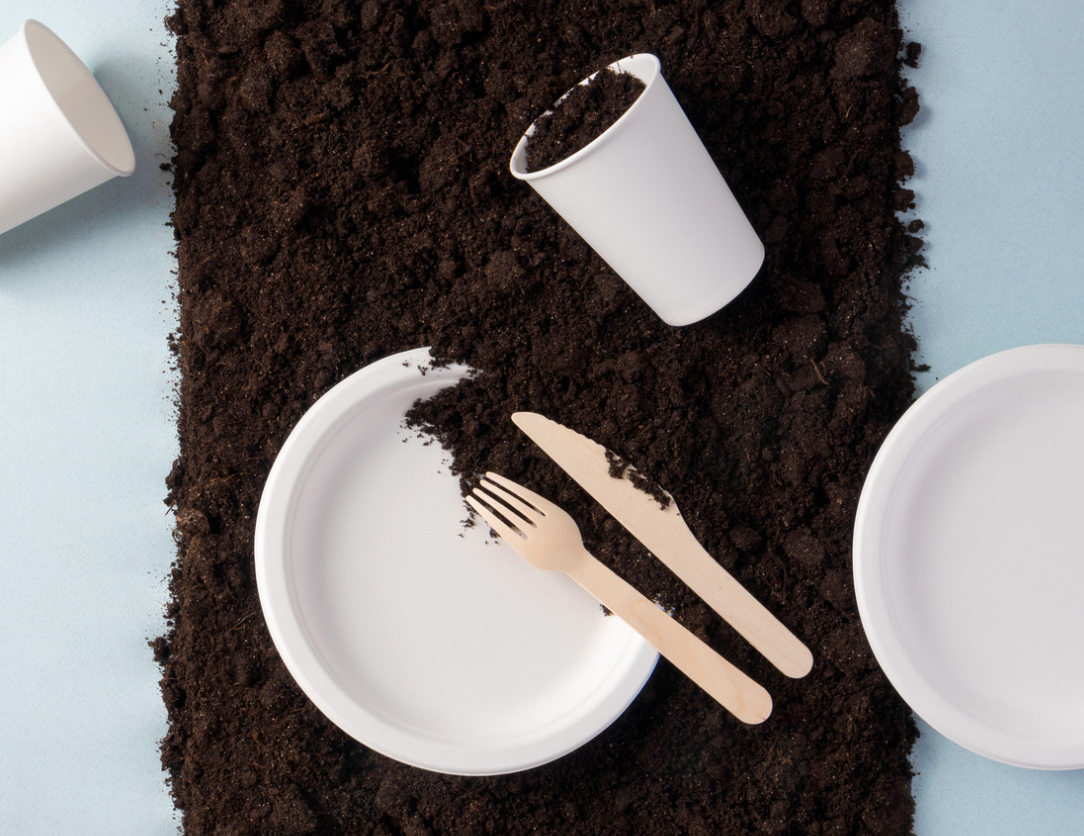
Educating both customers and staff is essential to ensuring the success of using compostable plates. This includes promoting composting initiatives and explaining the environmental impact of using sustainable products. Setting up compost bins in restaurants or partnering with local commercial composting services can make the process easier for customers. Additionally, marketing your use of compostable products can attract customers who are passionate about sustainability.
Promoting Sustainability Within Your Business
Educating your staff on the benefits of compostable plates ensures that everyone is on board with your sustainability efforts. Train your team to communicate the importance of these eco-friendly products to customers, helping them feel good about their choices. This can also lead to word-of-mouth promotion, where customers advocate for your business because they appreciate its environmental responsibility.
| Strategy | Compostable Plates | Plastic Plates |
|---|---|---|
| Education and Promotion | High | Low |
| Customer Awareness | High | Medium |
Conclusion
Compostable plates offer a range of benefits, from environmental and economic advantages to practical use in food service. By choosing these eco-friendly alternatives, you can contribute to a greener future while boosting your brand’s image.
Frequently Asked Questions
Are compostable plates worth it?
Yes, compostable plates are worth it. They are made from renewable resources and break down faster than plastic, helping reduce waste. Though they can be more expensive, their environmental benefits make them a great choice for sustainability.
How long do compostable plates take to decompose?
Compostable plates typically take 90 to 180 days to decompose in a composting environment. Decomposition may take longer in landfills due to a lack of oxygen.
What do you do with compostable plates?
Compostable plates should be disposed of in a composting system. If unavailable, check if local programs or green waste bins accept them.
Do compostable plates break down in landfills?
Compostable plates can break down in landfills, but the process is slower compared to industrial composting due to limited oxygen and moisture.
What are the negatives of compostable packaging?
Compostable packaging requires proper composting conditions to break down. It may also be more expensive and prone to contamination if mixed with non-compostable materials.
Is compostable better than recyclable?
Compostable packaging is better for organic waste and short-term use, while recyclable packaging is better for long-term sustainability, assuming recycling systems work effectively.
Can compostable plates be reused?
Compostable plates are designed for single-use only. Reusing them could hinder their decomposition process and might not be hygienic.
Are compostable plates safe for hot food?
Yes, compostable plates are generally safe for hot food. They are designed to withstand heat without losing their shape or integrity.
Can compostable plates be microwaved?
Most compostable plates are microwave-safe, but it’s best to check the product specifications to ensure safe use.
How are compostable plates different from biodegradable plates?
While both break down naturally, compostable plates decompose under specific conditions (industrial composting), whereas biodegradable plates may break down slowly and could leave behind harmful residues.

Ann
Hi, I’m Ann, and with over 5 years of experience in the foodservice industry, I’ve had the pleasure of working with restaurants and catering businesses to develop eco-friendly, tailored solutions that help you thrive in today’s green economy. I’m passionate about sustainability and committed to providing high-quality products that align with your values.
If you’re looking to make the switch to eco-friendly, sustainable tableware, I’m here to help! Reach out today, and let’s explore how we can support your business’s goals while contributing to a healthier planet.

